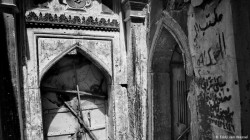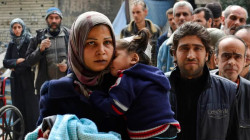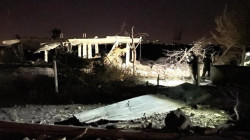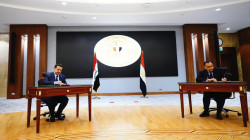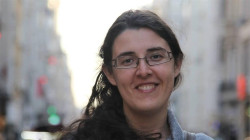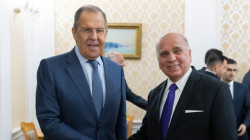Iraq revives nuclear ambitions 43 years after Israeli Bombing, garners international attention
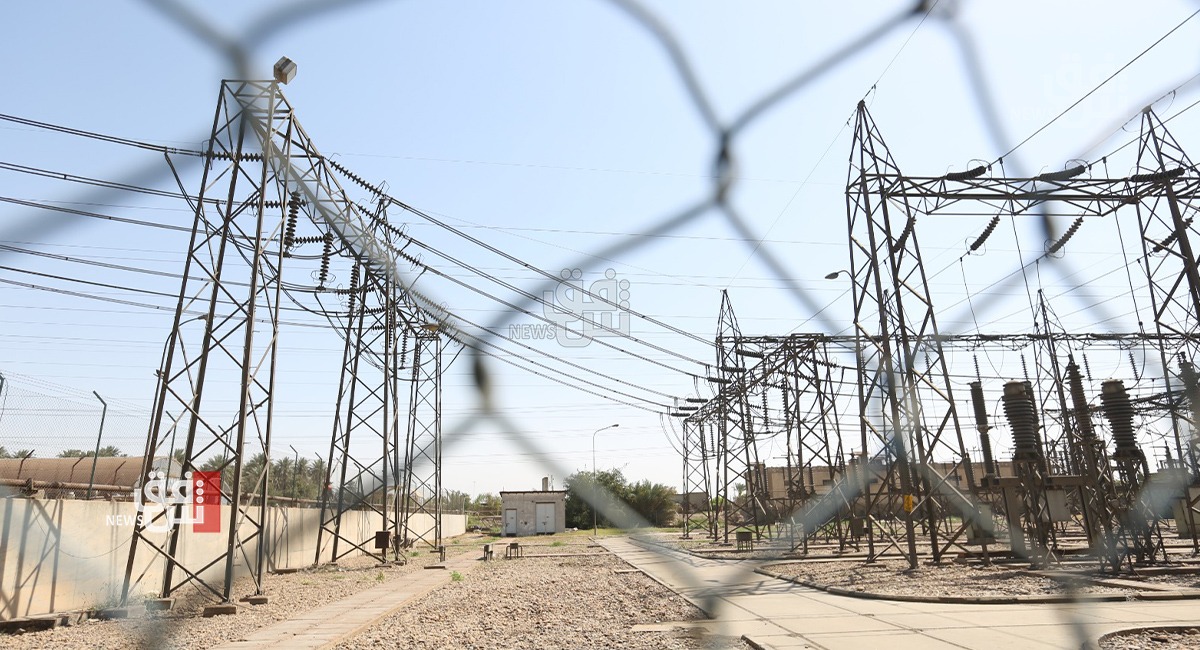
Shafaq News/ Iraq is revisiting its pursuit of nuclear energy, marking 43 years since the Israeli Bombing of the "Tammuz" reactor situated in the Tuwaitha area, southeast of Baghdad. Iraqi officials affirm that the renewed focus on nuclear energy will be strictly for peaceful purposes and intended for various developmental sectors, notably the electrical energy domain.
Since the 1960s, Iraq has endeavored to officially join the "Peace Nuclear Club," leveraging its scientific capabilities and resources to pursue this objective. In early 1975, France agreed to construct two nuclear reactors in Tuwaitha area/ Iraq, resembling those at the Nuclear Research Center affiliated with the French Energy Agency (CEA). The first reactor, named Tammuz 1, boasted a capacity of 40 MW, while the second, Tammuz 2, was constructed for training purposes, with a capacity of 600 kilowatts.
As the Iraqi reactor neared completion, history was made with a groundbreaking military operation on June 7, 1981, as the Israeli Air Force executed a precise strike, resulting in the complete destruction of the Iraqi nuclear reactor.
In addition to the Israeli strike, American aircraft targeted and destroyed two Iraqi nuclear sites during the 1991 Gulf War.
Iraq has initiated steps to reintegrate into "peaceful" nuclear activity.
On January 31, 2017, Law No. (43) of 2016 regarding the Iraqi Atomic Energy Commission was officially published in the Iraqi newspaper Al-Waqayie Al-eiraqia, under issue (4431). This publication followed the approval of the law by the Iraqi House of Representatives and its subsequent ratification by the Presidency of the Republic.
In this context, Iraqi Prime Minister Mohammed Shia al-Sudani declared on March 18, 2024, Iraq's intention to pursue nuclear activities for peaceful purposes.
According to specialists, Iraq has submitted its plan to the International Atomic Energy Agency for the period from 2023 to 2030. This plan entails the construction of nuclear reactors, subcritical systems, and nuclear power stations, collectively known as the nuclear fuel cycle. The absence of nuclear reactors is estimated to cost Iraq 3 to 5 billion dollars annually. The construction cost of these reactors varies between $100 million and $200 million, depending on their specifications and intended use, with a construction timeline of 5 to 6 years for each new reactor.
"IAEA's Columns: New Chapters"
Iraq's efforts to revitalize its nuclear program appear to be occurring under the scrutiny of the International Atomic Energy Agency (IAEA). Collaborating with Iraq, the IAEA is overseeing the decommissioning of outdated facilities and the construction of a peaceful nuclear reactor.
During his visit to Iraq on April 2, the Director of the International Atomic Energy Agency, Rafael Grossi, highlighted the transformation of the Tuwaitha nuclear reactor. Once a source of global concern, Grossi emphasized that it now represents a hopeful trajectory toward successful remediation. He underscored that nearly 43 years have passed since the destruction of Iraq's first nuclear reactor by Israel. Grossi affirmed that Iraq is entering a new phase in its nuclear energy endeavors, which are focused on peaceful purposes and supported by the International Atomic Energy Agency. He emphasized the collaborative effort to develop a roadmap for Iraq's nuclear activities, infrastructure construction, and acquisition of nuclear technology for peaceful applications.
The recent initiatives undertaken by the International Atomic Energy Agency (IAEA) were preceded by the Director of the Agency extending an official invitation to Iraqi Prime Minister Mohammed Shia al-Sudani in March 2024 to attend the Nuclear Energy Summit scheduled in Brussels during the same month. Additionally, the Director confirmed that the Agency anticipates a visit from an Iraqi delegation to its headquarters in the forthcoming weeks. This visit aims to facilitate the development of a roadmap that will enable Iraq to acquire nuclear technology for peaceful purposes.
"Assessment of Needs and Provision of Additional Support"
During his visit to Al-Amal Cancer National Hospital, Grossi remarked on the significant progress observed in disease treatments.
The Agency also announced its efforts to address gaps in Iraq's healthcare infrastructure, with two governorates lacking radiotherapy centers set to receive essential care. Additional support will encompass training, capacity building, and the provision of equipment and funding. These initiatives are crucial steps towards bridging the gap in cancer care, offering hope, and delivering life-saving treatments to a larger number of Iraqis.
"Radiation Protection Center"
The Radiation Protection Center conducts daily and continuous monitoring of radiation levels in the Iraqi environment, along with radiation surveys in various areas of the country. Additionally, the Center operates a network of 21 early warning systems and radiation environmental monitoring stations, all linked to a central station at its headquarters. Notably, the Center has achieved success by integrating the national early warning system with the international radiation monitoring information system and the unified information exchange and reporting system for accidents and emergencies.
Iraq, represented by the Center, stands as the third Arab country in this field, following Jordan and Saudi Arabia. This collaboration enables the sharing of radiation background data with countries worldwide daily and continuously.
The Center also performs radiological examinations on imported foodstuffs arriving via border crossings to prevent radioactively contaminated materials entering Iraq. The Center is actively enhancing its radiological examination capacity at all border crossings through an integrated investment project.
This project entails the installation of radiation screening gates at all ports and the construction of four laboratories. Furthermore, the project involves the reference and integration of the gate network into a centrally controlled monitoring system operated by the Center.
Dr. Sabah Al-Husseini, Director General of the Radiation Protection Center, emphasized in an interview with Shafaq News Agency, "The utilization of nuclear energy for electricity generation carries considerable benefits, including the reduction of carbon emissions, diversification of energy sources, enhanced security, and the provision of environmentally sustainable and economically viable energy solutions for Iraq's growing population." He highlighted the Center's crucial role in overseeing the decommissioning of nuclear facilities, management of radioactive waste, as well as activities related to nuclear medicine and radiotherapy.
Al-Husseini pointed out that these activities are rigorously monitored in accordance with quality management system instructions and controls approved by the International Atomic Energy Agency.
He further stated, "Nuclear energy stands as the optimal choice for the government due to its safety and environmentally friendly nature. It offers substantial quantities of electrical energy with minimal harmful carbon emissions, ensuring a consistent and reliable electricity supply year-round."
Al-Husseini suggested, "the construction of research nuclear reactors yields positive outcomes" by:
1. Supplying radioisotopes for therapeutic medical applications and nuclear medicine.
2. Producing radioactive isotopes for industrial utilization.
3. Supporting research and agricultural endeavors, including pest control and resource enhancement.
The construction of nuclear power plants also yields significant positive outcomes by supplying environmentally friendly electricity and curbing carbon emissions. Additionally, it opens avenues for potential utilization in water desalination, further enhancing its beneficial impact on various sectors.
"International Supports and Iraqi Losses"
Al-Husseini further underscored, "Iraq benefits from substantial international support in reinstating its position in the domain of peaceful nuclear energy applications." He noted that this backing materialized during the visit of the Director General of the International Atomic Energy Agency, who held discussions with the Prime Minister and other senior officials.
The Director General reiterated the Agency's commitment to providing the necessary assistance for Iraq to acquire nuclear technology and establish reactors for research and electricity production purposes.
Regarding Iraq's losses, he said, "The annual losses incurred by Iraq are immeasurable, with one of the most significant being the country's reliance on importing radioactive isotopes crucial for cancer treatment in the medical sector. Constructing a national research reactor could eliminate this need for imports, directly benefiting citizens by reducing the burden on patients and their families. Providing these isotopes domestically plays a crucial role in alleviating the challenges faced by treated patients and their loved ones."
"Higher Education in Focus"
On October 11, 2023, Minister of Higher Education and Scientific Research, Naeem Al-Aboudi, declared the preliminary approval for constructing a zero-power nuclear reactor exclusively designated for scientific research and educational purposes, benefiting university students. He emphasized that the reactor would offer invaluable support to students and researchers across universities.
The selected site for the reactor's construction will undergo decontamination from radioactive pollutants, with regulatory constraints lifted, thereby fostering advancements in the country's scientific research sector.
Al-Aboudi, who also serves as the head of the Atomic Energy Commission, affirmed on March 26, 2023, during a visit to the Russian city of Sochi, that Iraq possesses a defined strategy in the realm of nuclear reactors.
Meanwhile, during a separate meeting with the Director of the International Atomic Energy Agency, Al-Aboudi reiterated, "Iraq was once a pioneer in its pursuit of nuclear energy and now aims to be among the nations utilizing nuclear energy for peaceful purposes."
He emphasized that "despite the destruction of all nuclear facilities under the former Baath regime's misguided policies, Iraq's capabilities and scientific expertise are poised to reclaim their rightful place."
Al-Aboudi stressed the importance of harnessing nuclear energy for peaceful purposes, particularly in healthcare and agriculture, for the betterment of the populace.
